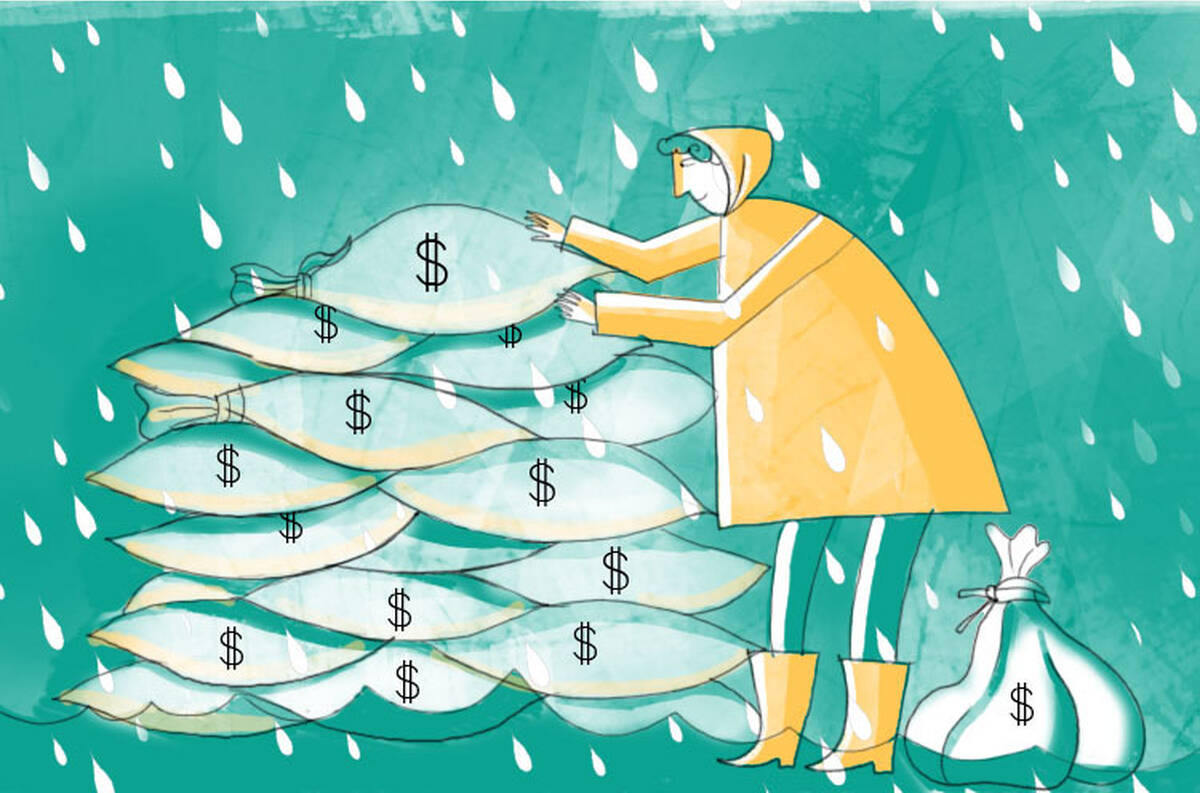Finance & Accounting Apr 23, 2020
What the Current Crisis Means for Private Equity
Access to capital will likely buoy some PE firms and the companies they back. Others will be less lucky.

Yevgenia Nayberg
As the economy flails and certain sectors implode while others boom, every industry is trying to figure out what lies ahead.
That includes the world of private equity. When considering the future of the industry, Filippo Mezzanotti suggests it is helpful to break the question into two parts: How are the companies funded by private equity going to fare? And what role will the PE firms, themselves, play in the broader economy going forward?
Mezzanotti, an assistant professor of finance at the Kellogg School, acknowledges that “it’s impossible to predict exactly what is going to happen,” given the newness and uncertainty of the downturn. But, with that caveat in mind, he offers his thoughts, which are informed by his own and others’ research.
What Does the Future Look Like for Private-Equity-Backed Companies?
When private-equity firms invest in companies, they generally add a good deal of debt to those companies’ balance sheets. Given the risks connected with having high debt levels during a crisis, what does that mean for all these companies today?
Mezzanotti and colleagues explored this exact question in relation to the last financial crisis. They examined data from nearly 500 PE-backed companies in the United Kingdom before and after the Great Recession and found that PE-backed companies actually weathered the crisis better than similar ones that were not backed by private equity.
While both PE- and non-PE-backed firms cut their investments sharply during the crisis, PE-backed firms did so much less than non-PE firms. In fact, the PE firms spent 5.9 percent more than the non-PE ones.
The researchers conclude that this relative health stems from the private-equity firms’ access to capital. For instance, firms raise large sums of money, and if they haven’t yet invested those funds, that money is available to tap into during a crisis. That available money is commonly referred to as “dry powder.”
“This dry powder can potentially be used to recapitalize a portfolio firm, which is a big advantage relative to a firm in which the entrepreneur may not have the same financial resources,” Mezzanotti explains.
And PE firms were sitting on a massive pile of dry powder going into the COVID-19 crisis. Mezzanotti points to a report from Bain & Co. that lists 2019 dry powder reserves at $2.5 trillion. In contrast, the report lists the 2007 amount at $1.1 trillion.
Another major asset that PE firms hold that will be valuable to their portfolio companies is specialized knowledge, Mezzanotti says.
“Clearly, if you have a private-equity firm with a lot of experience in turnaround and distress, that could be very useful now,” he says.
This combination of access to capital and expertise will likely help many recently acquired portfolio companies weather the crisis. Indeed, other researchers found that private-equity investments made in 2006-07, just before the Great Recession, did not fare substantially worse than investments the same PE firms had made earlier.
“However, private equity is an inherently risky investment,” Mezzanotti cautions, “and therefore we will see some PE-backed firms struggle in the next couple of months.”
What Role Will Private-Equity Firms Play Going Forward?
Given the trillions of dollars in dry powder that PE firms had going into this year, Mezzanotti thinks it’s likely that they will play a key role during the current crisis: supply capital in a market where there is a scarcity of it.
“I think private equity could play an important role in providing capital, and they definitely have the ability to do so,” he says. This could flow both to companies already in PE portfolios and ones firms chose to invest in going forward.
In fact, there are indications that this is already happening. A specific type of deal called “private investments in public equity,” or PIPEs, allow PE firms to provide financing to companies that would otherwise have trouble raising money in public markets. This provides those companies with the badly needed influx of cash—albeit at the cost of giving a discount to the new investors.
According to the Financial Times, there have been $17 billion in PIPE deals in the U.S. as of mid-April this year, compared to $9 billion in the same period last year. In one recent example, Wayfair raised $535 million from three PE firms by selling convertible notes, a type of short-term debt that converts into equity.
This is not a novel role for private equity, Mezzanotti says. For example, one research study from earlier this year showed that PE firms acquired one quarter of all failed banks between 2009 and 2014. And, importantly, those PE-backed banks went on to recover better than banks that had been acquired by other banks.
The role of private-equity firms going forward will rely on more than deep pockets, Mezzanotti predicts. As with the fate of portfolio companies, operational expertise will play a role here, too.
From supply-chain disruptions to new reliance on technology, businesses all over the map are facing massive changes to their standard operating procedures. So a distinct advantage will go to PE firms that have built a solid bench of people with deep knowledge in particular high-growth sectors, such as technology, and with extensive experience navigating turnarounds.
“In the last crisis, apart from the financial sector, no one was questioning the way we were doing things,” he says. “Today, this shock is affecting the way so many companies are running their business.”
Again, Mezzanotti cautions that the rapidly shifting nature of the current crisis makes prognosticating a risky endeavor.
But, he says, “if I had to make a bet on what’s going to happen, I bet PE is going to have an increasingly important role over the next year or two.”


